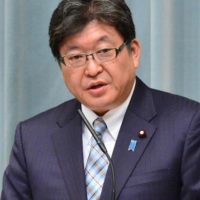Parents in England Oppose Longer School Days, Support Enrichment
UK Prime Minister Boris Johnson’s proposal to lengthen the school day by half an hour in an effort to make up for lost learning time during coronavirus has proven unpopular among parents. According to a survey by Parentkind, a network of parent-teacher associations, more than half of responding parents (56 percent) say they are opposed to a compulsory extension of the school day, with even stronger opposition amongst parents of secondary students, over 60 percent of whom opposed the plan. However, nearly two-thirds of parents supported extending the school day for optional physical activities, music, art, and drama—this was almost twice the level of support for optional academic learning. This reflects an awareness among parents that the biggest impact on their children of school closures has been on their social skills rather than their academic achievement. According to Parentkind CEO John Jolly, “The majority [of parents] want to see more extra-curricular activities that will…provide all-important chances to socialise and have some much-needed fun.” Read more at Forbes.

New Zealand Invests in New Literacy Program

Over the next two years, New Zealand’s Ministry of Education will invest NZD$10 million (USD$7 million) in rolling out the Better Start Literacy Approach (BSLA), an approach to early literacy skill development designed by researchers at the University of Canterbury. The approach uses engaging books, games, and activities to build foundational literacy skills in young children. Several controlled research trials support the efficacy of the BSLA in the development of oral language as well as early reading and writing skills. This year, 1,000 teachers across New Zealand will have access to professional development leading to microcredential qualifications to learn how to teach with this new approach; the government’s goal is to upskill 5,000 teachers and literary specialists in order to boost the literacy skills of over 70,000 students by 2023. An independent report estimates that once the program is fully implemented, every dollar invested in this early literacy approach will result in NZD$30.71 (USD$21.41) of “measurable good,” including increased academic achievement, higher employment rates, and improved mental health among students who participate. Learn more about the initiative at the University of Canterbury.
Alberta Expands Access to Child Care Subsidies
Children’s Services Minister Rebecca Shultz announced that Alberta will raise the income cutoff for childcare subsidies to allow more parents to qualify. The current family income threshold is CAN$75,000 (US$60,000) and as of September, it will be CAN$90,000 (US$72,000). The province will also allow families to use the subsidies to offset tuition at licensed preschools; currently the subsidies can only be used for child care programs. The province will also raise salaries of preschool educators. This will be paid for with a boost in federal funding as part of an existing Canada-Alberta Early Learning and Child Care Agreement. Earlier this spring, the Canadian government announced that it will work with provinces to create a national child care plan aimed at making child care affordable for all families. So far, three provinces—Nova Scotia, British Columbia and Yukon—have signed agreements with the federal government as part of this plan; Alberta has just begun negotiations.

Japan May Scrap Teacher License Renewal Rules

In 2009, in an effort to improve teaching quality, Japan introduced a 10-year renewal requirement for all teaching licenses. However, under criticism that the requirement places undue burdens on already overworked teachers, the education ministry is considering abolishing the requirement. The renewal process requires teachers to attend at least 30 hours of lectures over a two-year period to make sure they are up-to-date on the government’s education policies, a requirement made more difficult during the pandemic. Education Minister Koichi Hagiuda has asked the Central Council for Education to review the license renewal requirements with an eye to scrapping them. Instead, the ministry is considering a new training program for teachers that would cover online teaching, digital textbooks, and care for children with developmental disabilities. Read more at The Japan Times.




